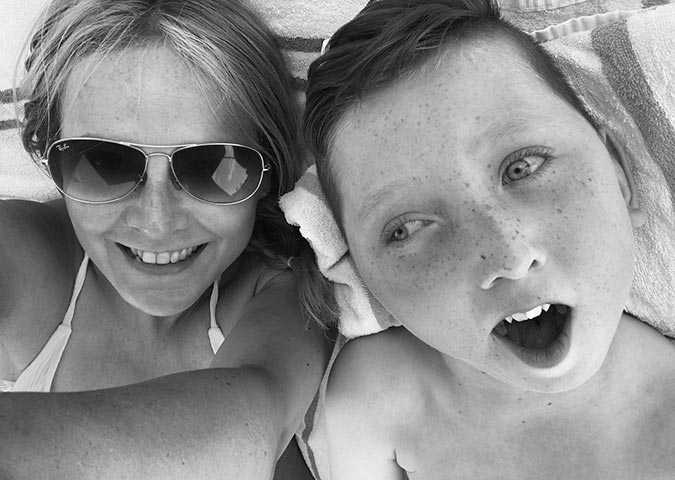We all react to change differently. But as we come to terms with a new and unique set of circumstances it’s easy to feel isolated. This feeling only increases for people with existing mental or physical disabilities or those who are required to self-isolate or be ‘shielded’ due to age or health conditions.
With the country in lockdown, it’s more important than ever to look after yourself and your loved ones. We take a look at what our client George, and his mum Natasha, are going through and offer advice for those who may be struggling more than most.
Everything You Knew Has Changed
We asked Steve Hill, Senior Associate Solicitor in our personal injury team to talk about the challenges our clients with a brain injury are facing during this time.
Many of our personal injury clients suffer from Traumatic Brain Injury (TBI). They rely upon case managers, rehabilitation therapists and support workers to help them function. Things that most of us take for granted can only be done with a lot of support in place.
So what happens in a pandemic, when social distancing is enforced? The most obvious impact is that all of the treating therapists and support staff are unable to attend to provide the usual treatment and support.
This has a huge impact on the person with the injury, as it can take a long time to build a successful rehabilitation package. After a brain injury, people can get into very bad habits with sleep, food, spending money and structuring their days. With the right amount of input and support, they can start to live more of a normal life. Without that support in place, sadly they can very quickly slip back into a disordered lifestyle.
Lots of professional people are using video conferencing to keep their businesses going, however this doesn’t always work well for someone with a TBI. As individuals with a brain injury have a lower attention span, and can’t cope with a long video call with a therapist.
On top of this, many people who’ve suffered a brain injury simply won’t understand what the virus is or how they should adapt their behaviours. They may not realise why social distancing is in place or why they can’t just pop to the shop to get a few things.
Our case managers are sending information in different formats, but that’s only effective with a small number of clients. Some clients with memory difficulties can understand the information, but will forget an hour later and go outside. Normally these clients would have support workers to help them, but without that structure in place, there’s nothing to reaffirm the message.
Where previously the case manager was helping people to progress, many have admitted that maintaining where they are is all that they can hope for at this time. The battle is to stop them from slipping back too far before the crisis is over.
It’s really important to understand that everyone’s situation and response will be unique to them. Everyone has different ways of coping, so it’s important to be kind and patient, supportive and understanding, especially to those who may be struggling to understand what’s happening.
Natasha’s top tips

Thousands of people across the UK are looking after loved ones, who need round the clock care during lockdown.
Our client George has a brain injury, and his mum Natasha has started a Facebook Page that she hopes will help others in a similar situation.
George Eden-Taylor suffered a serious brain injury shortly after his birth which means he cannot walk, talk or eat and is reliant on a specialist team of carers. The 14-year-old also has severe respiratory problems, which means it’s likely he wouldn’t survive COVID-19 if he contacted it.
The family made the difficult decision to stop external carers being in contact with George to reduce the risks he’s exposed to. Natasha hopes it will also inspire other families in similar situations as well as reinforce the need for people to stay at home during the current lockdown.
As part of the Facebook group, Natasha has been providing top tips for people going through similar struggles; here’s a few of her most helpful pieces of advice.
You can read more about Natasha’s top tips and her story here.
A Good Night’s Sleep Makes a Massive Difference
Many of us are finding it more difficult to sleep right now, due to changing routines and other stresses caused by the coronavirus crisis.
If you have a disability then staying as rested and relaxed as possible is absolutely key to maintaining a healthy mind and body.
Getting enough sleep allows our body to physically recover after the day. Most adults need roughly 7-9 hours every day, but there are a variety of factors that determine how much sleep a person needs.
Read our guide here to find out why sleep is so important, and what you need to do to get a good night’s rest.
We’re here for you
We understand that this is a difficult period for so many people around the country. If you need legal advice or support on anything you’re struggling with, please get in touch today.
Turning Point – May 2020
Sign up to updates from Irwin Mitchell
For general enquiries
0808 291 3524
Or we can call you back at a time of your choice
Our opening hours are Monday to Friday 8am to 6pm (excluding Public Holidays).
